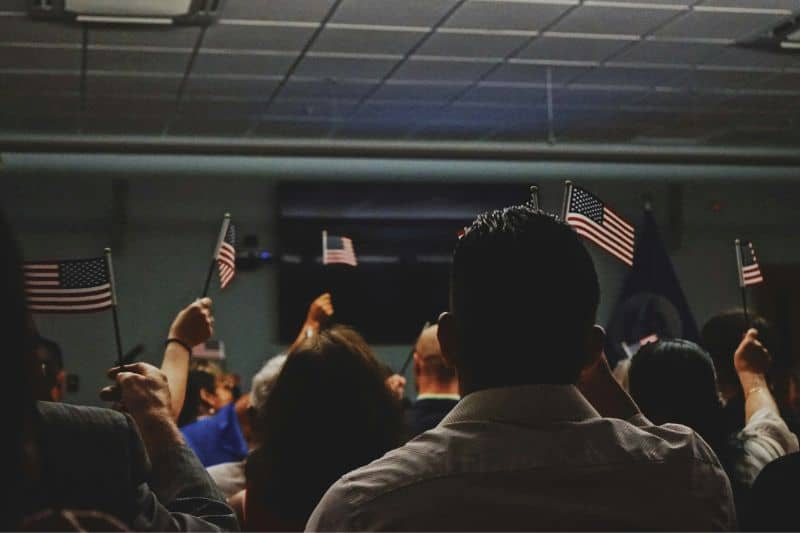How to Apply for Humanitarian Parole: A Comprehensive Guide

You’ve faced unimaginable hardship – violence, oppression, lack of medical care – basic human rights denied in your home country. When conventional immigration channels fail, humanitarian parole represents a potential lifeline, a way to legally enter the United States temporarily due to urgent needs or emergencies.
But like most things with U.S. immigration, getting approved for humanitarian parole involves dealing with a lot of red tape and confusing rules. That’s where our immigration lawyers can help. We know the humanitarian parole process inside and out after years of experience. Our job is to make the path clear for you, walk you through every step, and fight hard to get you safely into the United States.
What is Humanitarian Parole, and Who Qualifies?
Humanitarian parole allows foreign nationals otherwise inadmissible or ineligible for a visa to temporarily enter the U.S. due to urgent humanitarian reasons or significant public benefit causes. These short-term admissions fall under the discretion of the Department of Homeland Security.
Common humanitarian parole grounds may include:
- Urgent medical emergencies requiring treatment unavailable in one’s home country
- Providing critical support or visitation for an ailing U.S. relative
- Escaping imminent violence, civil unrest, or natural disasters
- Participating in legal proceedings as a witness or plaintiff
Significant public benefit paroles, while rarer, enable foreign nationals to enter for reasons like:
- Contributing to an issue of national importance (academic research, business investments, etc.)
- Temporarily assisting in national emergencies or disaster relief operations.
It’s crucial to understand that parole isn’t a lightweight visitor visa – compelling, well-documented circumstances are essential to overcome the presumption of inadmissibility.
Common Humanitarian Parole Programs and Eligibility
Beyond standard humanitarian parole, certain programs facilitate temporary entry for nationals of specific countries facing crises, conflict, or unrest:
- Ukrainian Nationals Parole Program: Launched after Russia’s 2022 invasion, this allows Ukrainian nationals (and their immediate families) outside the U.S. to seek parole for two years, provided they have a financial sponsor.
- Cuban Family Reunification Parole: Eligible Cuban nationals can rejoin certain family members lawfully residing in the U.S. while awaiting their immigrant visa interviews.
- Haitian Family Reunification Parole: Similarly reuniting certain Haitian nationals with U.S.-based families ahead of immigrant visa appointments.
- Nicaraguan Family Reunification Parole: Allows eligible Nicaraguan nationals to temporarily reunite with U.S.-based family while awaiting immigrant visa processing.
- Venezuelan Family Reunification Parole: Permits eligible Venezuelan nationals to rejoin specified U.S. relatives ahead of immigrant visa appointments.
Temporary parole windows regularly open and close for various nationalities based on global events. Consulting an immigration lawyer is vital to assess if you qualify under the latest programs or policies.
Preparing and Filing Your Parole Application
To apply for humanitarian parole from outside the U.S., you need to file Form I-131 and Form I-134. The I-134 shows you have enough money to support yourself during your stay in the U.S. However, just submitting those forms isn’t enough. You also need strong documentation proving your urgent humanitarian reasons for needing parole.
Potential supporting evidence includes:
- Medical records/evaluations describing life-threatening conditions
- Proof of imminent threats or endangerment in your current location
- Legal documents like subpoenas demonstrating the need to participate in U.S. proceedings
- Death certificates or other proof of ailing U.S. relatives you’re attempting to assist
The burden rests firmly on the applicant to make a humanitarian case for why conventional visa channels were inadequate or unavailable.
Streamlined Parole Process for Cuban, Haitian, Nicaraguan, Venezuelan, and Ukrainian Beneficiaries
The U.S. government has implemented a streamlined parole process for certain beneficiaries. Under this process, the government may grant advance travel authorization to up to 30,000 eligible individuals each month to seek parole on a case-by-case basis at U.S. ports of entry.
This process involves the following key steps:
- Supporter Request: A supporter based in the United States must first complete and file Form I-134A with USCIS, providing information about the beneficiary they intend to support financially.
- Beneficiary Information: If the supporter’s request is approved, the beneficiary will receive instructions from USCIS to create an online account, confirm biographical details, and attest to meeting eligibility requirements, including public health requirements.
- CBP One App: The beneficiary must then submit a request through the CBP One mobile app, including biographic information and a photo.
- Travel Authorization: After vetting, the beneficiary may receive advance authorization from CBP to travel to the United States for consideration of parole at a port of entry.
- Port of Entry Inspection: Upon arrival, the beneficiary will undergo additional screening and vetting by CBP officers, who will consider granting discretionary parole on a case-by-case basis.
- Parole Grant: If approved, the beneficiary may be paroled into the United States for up to two years and can apply for employment authorization.
Tips for a Successful Parole Request
Given the complexities and rigorous screening processes, an experienced immigration lawyer can mean the difference between approval and denial.
Our attorneys provide comprehensive guidance, including:
- Evaluating if your circumstances legitimately warrant expedited parole over standard visa options
- Identifying the optimal supporting documentation or evidence to include
- Ensuring proper completion of all required forms and submissions
- Fulfilling stringent financial support requirements through sponsors or self-sufficiency
We understand a parole denial could put your health, safety, or welfare at grave risk. That sobering reality drives our painstaking approach to building an airtight application demonstrating your qualifications.
What Happens After Submitting a Parole Request?
Upon receiving your completed parole packet from our office, U.S. Citizenship and Immigration Services (USCIS) will initiate a review and screening process spanning several steps:
- Initial screening to confirm jurisdiction over the request type and urgency assessment
- Background checks, security vetting, and biometrics collection, if necessary
- Scrutiny of all evidence supporting urgent humanitarian or public benefit grounds
- Final supervisory review ahead of issuing an approval or denial decision
If approved, USCIS will issue a conditional parole approval facilitating your travel booking and arrival clearance by Customs & Border Protection. But be aware – approval is no guarantee. Final admittance grants happen at the port of entry.
If Humanitarian Parole is Denied
Given the extraordinarily high volume of parole requests recently, denial rates have surged – often due to government backlogs rather than the merits of the case itself.
In certain scenarios, reapplying by starting fresh with a new parole petition could prove the best path forward – especially if your urgent humanitarian circumstances have materially changed since the original denial.
If your parole request is denied, our attorneys will look at all possible next steps to keep fighting for you. We’ll lay out a clear game plan that makes sense for your specific situation and needs. We won’t give up until we’ve tried every available option to get your approval.
The First Step Towards Refuge Starts Here
If you’re facing oppression, violence, or life-threatening conditions in your home country with no way to get a regular visa, humanitarian parole may allow you to temporarily enter the U.S. for safety. But, the immigration system’s policies create major obstacles and make this process unnecessarily complicated.
At the Law Office of Lina Baroudi, we challenge unjust immigration barriers. Our multilingual professionals will invest the time illuminating your unique route to safety and freedom.
If you or your loved ones face urgent humanitarian emergencies that preclude conventional visa options, act now before circumstances deteriorate further. Reach out for a consultation so we can begin evaluating your parole eligibility and estimating timelines.
